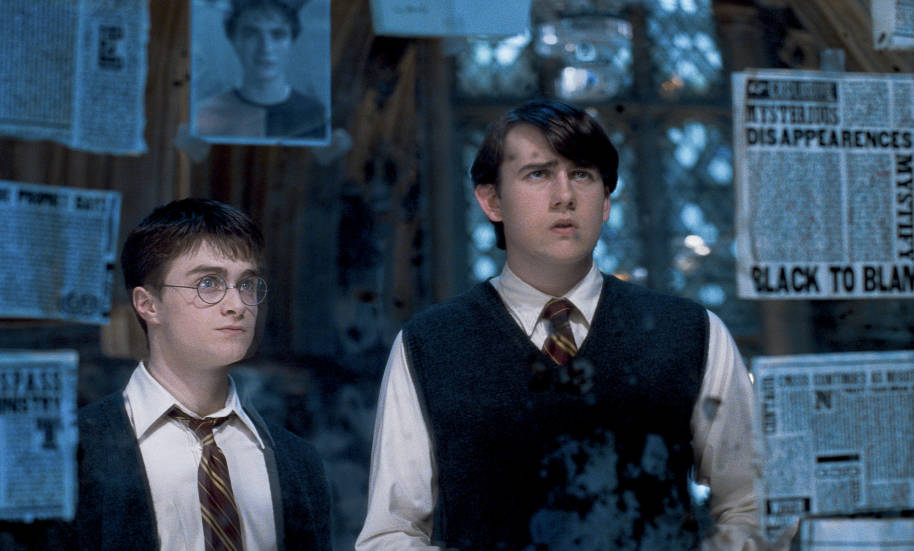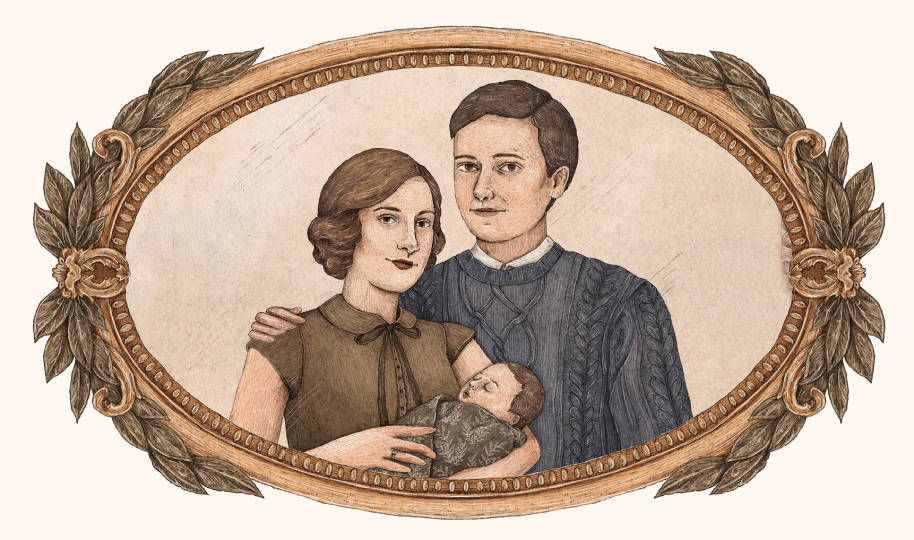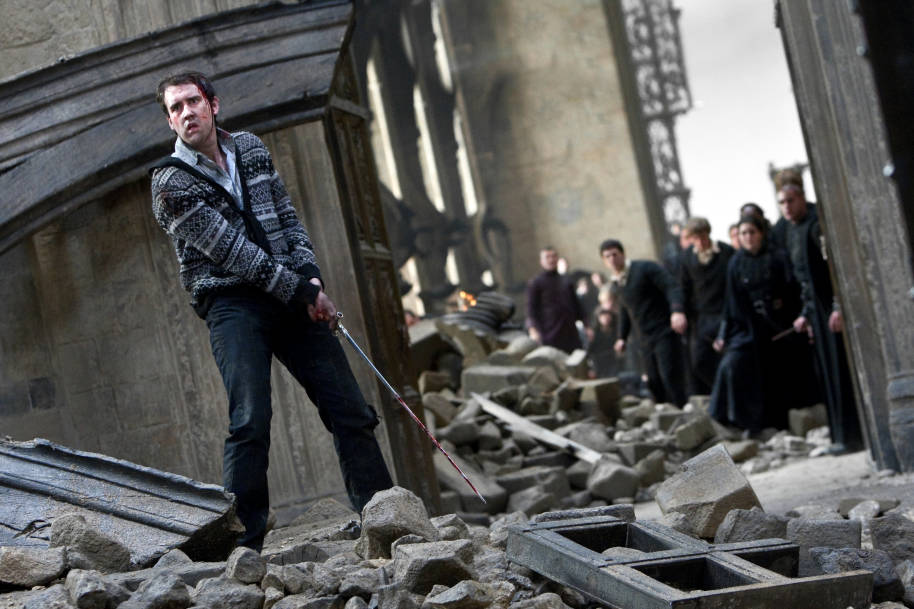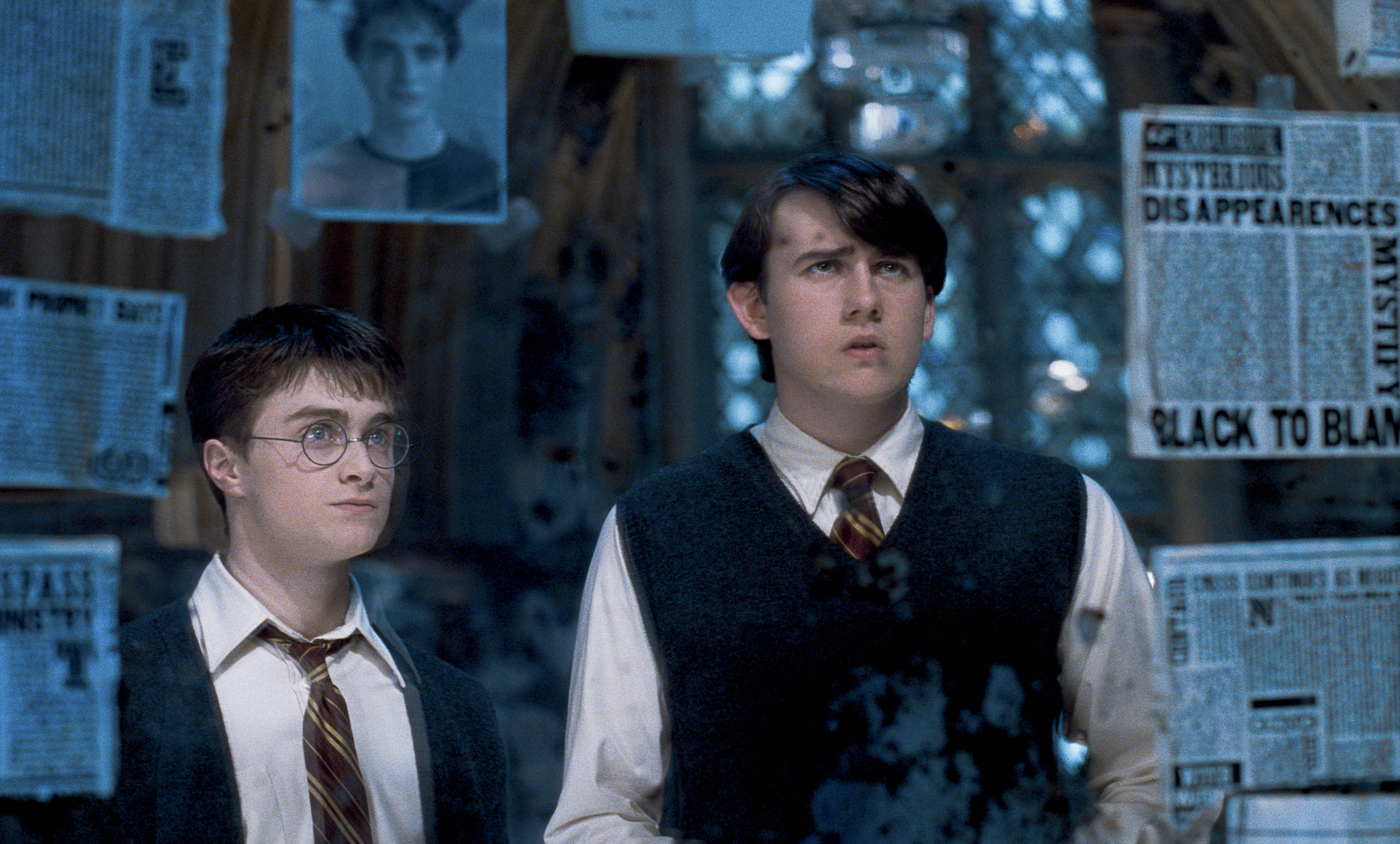
Neville Longbottom had a rough time at Hogwarts. Throughout the Harry Potter series, the wizard was seen by others as clumsy, as dim, as a coward. Even the idea that Sybill Trelawney’s first prophecy – referring to the one with the power to vanquish the Dark Lord – could have been about Neville, rather than Harry, was hardly expected. But that, of course, is unfair. For Neville might not have been as gifted as Harry Potter; he might not have been as confident or as famous, but that didn’t make him any less brave – it just meant that he exhibited a different kind of bravery. For example…
Neville, too, had a tragic upbringing
Neville Longbottom’s parents were not killed, but they arguably suffered something worse. Frank and Alice Longbottom, Aurors and members of the Order of the Phoenix, were tortured into insanity by Death Eaters; to the point where they couldn’t even recognise their own son. While Harry lost James and Lily instantly in a flash of green light, Neville grew up knowing exactly what happened to his own mum and dad, choosing not to tell anyone at Hogwarts of the secret tragedy. When Harry realised, he was devastated for Neville, as were we all.

He wasn’t as naturally gifted, so had to work with what he had
As mentioned before, Neville wasn’t a particularly gifted wizard – a fact that was either the cause or a symptom of his confidence issues. His relatives feared he might be a Squib: his great-uncle even pushed him off Blackpool pier, hoping it would inspire some magic in him (Neville nearly drowned instead). So from the very start, Neville was working with a disadvantage; a contrast with Harry, who picked up magic remarkably quickly, and even managed to master some very advanced spells. But it’s easier when you’re naturally gifted; it’s much harder when you’re not. Neville had to overcome his limitations, conquer his confidence issues and work harder than anyone else. Considering where he started from, Neville’s skill and confidence by the end of Harry Potter and the Deathly Hallows was just as remarkable as Harry’s.
He wasn’t the Chosen One
Neville Longbottom may have been part of Sybill Trelawney’s prophecy, but he was not the Boy Who Lived. That was Harry Potter, and while the resulting fame didn’t always make Harry’s life easier, it certainly helped him to make an impression at Hogwarts and beyond. Neville, like so many other students, wasn’t special; he didn’t come to school as a celebrity, or even as someone who was cool. Neville was nerdy, shy and picked upon – a target for bullies and Peeves. And as anyone who has ever been unpopular in school can attest, getting through all that is bravery enough.

Harry got more help and guidance
Although Harry never asked for it, his fame came with perks. Neville, for instance, was never invited to Albus Dumbledore’s office (that we know of), nor was he given special lessons by Remus Lupin. He was, of course, a favourite of Professor Sprout, but that’s only because he worked hard at something he was good at; not because of his name. In fact, the only teacher to invite Neville for tea was Mad-Eye Moody – later revealed to be Barty Crouch Jr – who was only using Neville to get to Harry. Hogwarts is different when you’re not Harry Potter.
Harry had Ron and Hermione – Neville didn’t
In time, Neville became good friends with Harry, Ron and Hermione, but he didn’t seem to have a strong inner circle – or even a best friend – of his own. You could argue, of course, that Harry, Ron and Hermione were his best friends, but it’s not the same. The trio didn’t invite him along on adventures, for example; indeed, as seen in Harry Potter and the Philosopher’s Stone, they hit him with a Body-Bind Curse when he tried to stand up to them. Instead, Neville spent his years at Hogwarts on the periphery of friendship groups, with no one good friend to call his own. It’s little wonder that he took to Dumbledore’s Army – more a fraternity than anything else – as enthusiastically as he did.

He wasn’t naturally brave – which made him all the braver
Neville Longbottom’s defiant stand against Lord Voldemort at the end of Deathly Hallows was iconic for many reasons, but it’s mostly because it was so unexpected. Neville was never the actual hero. Nor was he naturally brave. For it’s easy to overcome fear if you’re not naturally a coward. Harry Potter, the epitome of the brave Gryffindor, walked towards danger because it was the right thing to do, yes, but also because he could; because he was naturally good at it. But for people like Neville, walking towards danger – or, in this case, standing up to evil – required a different kind of courage; a strength to overcome your natural fears, a battle to be fought within yourself before the actual battle is fought. As Albus Dumbledore once said to Harry, the time may come ‘when you have to make a choice between what is right, and what is easy’.
It’s something Neville never had to be told.


